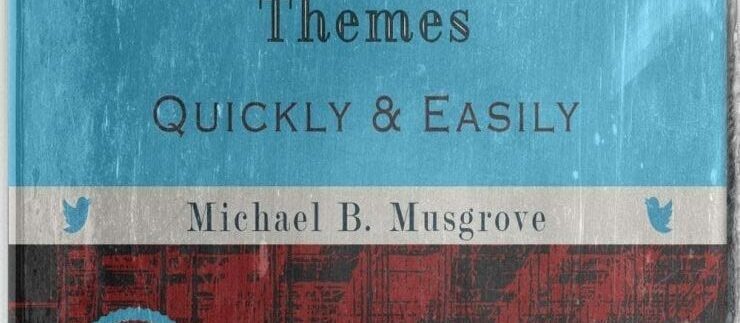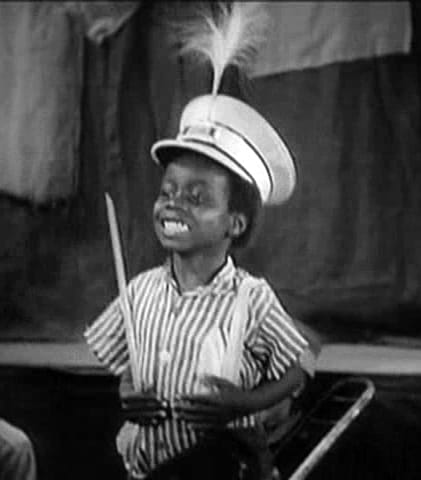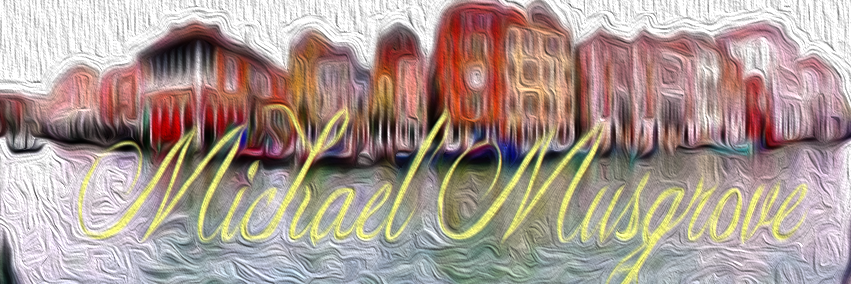The pen is mightier than the sword… Take away the sword; States can be saved without it!
Edward Bulwer-Lytton, 1839
This metonymic adage, penned by English author Edward Bulwer-Lytton in 1839, tried to indicate that communication , particularly the independent written language and press of the times was more powerful and of greater leverage than direct violence, which the times had seen, much like in our current America and certain places abroad.
When the pen is used in union with violence, then what’s left? That’s as frontal an attack as can be rendered. And for efforts as great in scope and scale as global politics, it’s exactly what’s tendered.
But I’d rather bring the focus a little narrower although the scale is almost the same.
And that’s the matter of modern writing as we’re seeing it presented.
The internet is mostly comprised of words, with many images and videos uploaded, to be sure. But the framework and spine of the creature is made up of words, expressed by people of all sorts of human languages then translated into binary language so computers can file and store it all for us.
And as a global population, we’ve slowly but collectively picked up our hands from the typewriters, and pens and papers and shifted them over to the keyboard of a computer, and even the touch screen of a smartphone or tablet, and at times, voice-assisted dictation to render our thoughts into communicable prose.
All well and good.
But as the ability was given to the masses to produce printable type with Gutenberg’s printing press, the ability to produce mass works, tomes, essays, manifestos, down to newsletters, emails, text messages and tweets, and ever-smaller blurts of text meant to represent thought, down to “emojis” which remove text altogether and present just a symbol to communicate some thought, with the responsibility and broad range of assumptions left up to the recipient to decide what the intended message is supposed to be. It’s not surprising we see communication breakdown everywhere with the expected consequences. That being frustration, miscommunication, no meeting of the minds whatsoever and mental dystopia for all involved parties.
There’s a science behind communication, and although the usage of words and language may vary greatly, the creation of thought, arranging that thought into a series of communicable letters and words, and voicing those very same words with voice, or saving them for posterity by having them placed onto a document is imperative. And the method and guidelines of doing so up until recently were dictated by a small collection of mutually agreed-upon boundaries and guidelines. I have a repository of writing resources I use here.
Those guidelines are the works of the generally accepted best practices of AP Style, Chicago Style and put forth by Strunk & White:
Your writing has to do with so many dynamics, it’s difficult to address them all without creating a huge Styleguide, that’s rendered obsolete as soon as it’s published.
While I’m at it, I don’t mean to come across as some type of writing expert. t’s a craft and art. And I think, as I sit here and ponder what makes me have any credibility, I’ll just deposit my credentials here and you can have at them as you want: I am the son of an English major and highly literate mother and father and set of grandparents. All attended college as did their siblings. My aunt, the sister of my English major mother, went to graduate school and ultimately received a Doctorate in English, I believe. And although that doesn’t make me any smarter, I spent no small-time around her and her magniloquent vocabulary.
So I always leaned towards English as an easy subject. I always got Straight A’s and ended up in Honors English throughout school. I got straight A’s as much as possible, so don’t think I was a flounder in the rest of my studies. I just always found English easier, and when I took the SAT, my propensity towards English showed as well. I scored almost perfect on the English portion of the SAT. I loved to write, and still do, obviously.
So when I got to college, I went to a liberal arts college called Rollins College in Florida my Freshman year. I studied Philosophy, Latin, which I already had 2 years of, English, of course, Writing, Business Law(which I found endlessly fascinating), Economics, Psychology, which I had and still have a strong interest and curiosity in, and Inductive and Deductive logic.
I transferred back to my home state of South Carolina to finish up University at the University of South Carolina where I earned a Bachelor’s degree, majoring n English, and minoring in business administration, which I already noticed the two schools were like fire and ice. The English school housed all the artists, poets, creatives and more “liberal” free spirits. Over at the business school, there were suits and ties and protocol and probably a lot like engineering, which I wish I had studied more of, everything was tied up straight and tight. Certainly a more scientific atmosphere than the artistic English and language arts scene.
From there I flopped around and found a job as an Editor in Atlanta. So I did that for around 5 years, and enjoyed it. But I was a financial newswire editor. And the two sides of my brain were fighting. So I started a business back in South Carolina. Which had nothing to do with writing. But I did a lot of reading. Lots. And eventually found myself back in graduate school.
So I began writing a lot, Marketing plans. Business plans. I was the default writer and editor for our business group, which was a stressfull position to have thrust upon me. But I pulled it of course. Giving 100 page-plus deliverables to Fortune 500 companies I wrote most of, compiled, edited and finalized for final submission and delivery to the CEOs of the top companies on Earth. So there you go.
And then after that, I began editing scholarly articles for professors for their submission to business journals. I was published in Harvard Business Review. I was making sure the top professors in America had their i-s dotted and t-‘s crossed, and more.
After that I began consulting for companies, preparing marketing plans, strategies, business plans and writing advertising copy for them. Writing the advertising copy was a side job that I did more as a favor, as well as I found myself writing web copy to put o their websites as a marketing initiative. Things were beginning to get less marketing strategy and more writing hardcopy for inbound marketing purposes.
So I found myself writing a lot of marketing copy for the purposes of persuading people to relinquish their email address and contact information.
And while doing this I, of course, was keeping up to date on the trends of “digital marketing” and what was going on on the outside.
Wha I noticed was this:
An overabundance of people suddenly had laptops and computers and was using them to write their thoughts for public consumption.
I won’t delve into what the purpose of the generous overload of detria that gushed forth onto the internet was. Whether it was to consume, evaluate, debate(truly), or opine, is not the focus of this equally banal essay.
What is the purpose is to evaluate the quality of the matter put forth.
We know where to look for the usual, the germane, the “la-de-dah.”
Many people begin to write, oh, do they. And the platforms encourage everyone to become the next famous novelist. I won’t even both with whose name should go there. So we have our platforms, WordPress, Medium, Ghost, Substack, and even more that aren’t considered. Github is a perfect tool for writing, and in fact, there’s a product/tool that I use myself with them that I love. Gitbook. I began writing about my life, my memoirs, not for my ego’s sake, but for the purpose of carrying on the incredible stories and legendary feats and trials and tribulations of my family. I’m an only child and only grandchild, and with my absence, there goes a lot of history and knowledge about our crazy family. It’s an insanely useful and free and well-built tool.
And already I’ve heard the stories retold by my aunts that omit, replace, or delete, intentionally or not, the details of our family’s history. It’s told in stories, and I certainly have the equipment for housing stories. And I want them preserved for my daughter’s sake, and her children’s sake, and anyone else that wants to peruse them.
I’ve been around as much as anyone, so I don’t want these memories to fade away into the ether. They represent who we are and were and hold our spirtits together.I’ve had the pleasure of being in the presence of many people who are long gone. But I remember them vividly, and with the ability of my English skills, I hope to retell them so that future generations can reflect upon them and wonder and see what magnificent and at times odd people we’ve had in our family.
Tears well in my eyes because it’s so important to me to pass on the knowledge I’ve had to those that would never have known. I try to capture as much as I can with video and photography, but when I was growing up, cameras weren’t so ubiquitous (See: fancy English word). But my daughter’s life is certainly recorded as much as I can physically afford. My house is a shrine to her.
I’ve found writing is an art that, to be passionate about, is begun when we’re very young. I’ve had that passion instilled in me. I don’t utilize it at it’s best and highest use, I admit. That’s a flaw I have that I’m working on improving with no help. So it’s a lot like waking around in a dark room, trying to feel my way to the light switch. I often think about if I had started wring screenplays or novels, my life would be so different. What type of writing would suit my skills best?
I actually published a book about how to program computers using the Bootstrap framework, which I forgot about, and is still a very strong foundation when building a website. It’s kept up and iterated by the same people and it’s a powerhouse. When I wrote my book, the version of Bootstrap was around 2. Now it’s at 5.01. And if you don’t keep up you’re toast. But I have copies on my bookshelf to sign if anyone’s interested. I gave my Twitter handle of @getbootstrap to Mark Otto, one of the original developers. And I still have a lot of “GetBootstrap” paraphernalia around, like email addresses and WordPress URLs. And I am the owner and admin of a wildly popular Facebook group centered around Bootstrap. But I digress.

Yes, it depends on the audience. Yes, it depends on the voice you’re going for. Yes, it depends on yhe tone you want. Yes, it depends on a lot of things.
But there should be a solid standard by now for sure that we can agree on for what is a standard level of literacy. That’s another problem we have among us. Standards of literacy differer greatly across this country, I’ve found.
Schools and institutions are allowing people to pass through programs being for most purposes, illiterate. And I’m not only talking about football players or other educationally-neglected people.
I was married to a woman who has a tenured professorship position at a state University that has the reading comprehension of a 4th grader. I’m not joking. I edited her journal submissions for her to get her prized tenureship while we were married. I’ve known her for 15 years now and I’ve never known the woman to pick up a book and read it, ever. Textbooks, sure, with lots of photos and simple sentences. But never, ever a single book to entertain her mind. And that poor reading comprehension is what has led us to be at odds to this day.
Another example is my landlord, who attended Westpoint. A very credible institution for the military-minded, no? He’s married to an attorney. And he has sent me letters and texts that read as if they were drafted by Buckwheat himself.

And during all this time, while we’ve been getting ourselves adjusted to the “Internet of things” and settled in, there’s been a lot of jockeying for what constitutes proper writing online.
Of course, online, there really are no rules, which makes things that much more difficult. What evolves is a democracy of “rules,” not a tight obedience and compilance to the rules of protocol.
I’m not suggesting Mother Superior stand over us with her ruler cocked and loaded, but at the same time it can’t be Caligula either.
What I’mm getting at is that the leash is very loose on what passes for seriou, good, well-crafted writing online. Every now and then we’ll stumble upon a person who gets it. But more likely, we’re forced to read the words of some political science or gender studies hack that managed to place a post or two on some widely-read blog or somehow simply went viral, with no thought given to it’s structure.
Which leads us to this “new” style of writing, which is much more conversational, since we find ourselves on a boundaryless screen instead of a physically-limiting piece of paper.
I find myself gravitating towards this roomier, more comfortable workspace as well. But you don’t want to exploit it. There’s a difference between doing something for the sake of doing it, and then there’s the reason for why you’re doing what you’re doing and you’re cognizant of it, and you’re aware of the limits and in control of it. And when it becomes the misuse of it.
And that’s when I begin seeing articles like this, which incredibly is posted on Inc. Magazine, which is a publication I once valued and had a subscription to. But now the “publications” are just a skeleton upon which freelancers come to perch, poop, get their “Featured on Inc.” badge and fly away. No clue was ever germinated, no comments are allowed to create feedback and possibly better, or at least different, ways of doing things, and with the fear of too much negative commentary, which articles like this should receive, they instead decided to render comments closed.
Here’s the article that got the whole thing started:
https://www.inc.com/justin-bariso/why-emotionally-intelligent-minds-embrace-rule-of-writing-in-reverse.html
Writing in reverse, huh?
How about just stick with the tried and true 3 part recipe:
- Introduction – State what you’re going to say.
- Meat of the sandwich – Say it.
- Conclusion – Reiterate what you said and summarize, with a nice thank you and goodbye.
Doesn’t work for you?
Then how about a table of contents, and then a well-laid out, concise, reasonable, easy-to-follow- path of thought from beginning to end, completing an arc and resulting in a nice complete circle? That would create an involving, insightful book, perhaps.
No?
Well, you could do what many people are simply doing and just writing the way you speak.
Ignore all stylistic directives and barf out a sentence, one after another, interrupted with an image, or video:
or then perhaps a large heading or visual cue to stop.
And think.
Why try to create interesting, cohesive clauses and carefully-chosen sets of words? Why utilize the elements of English to produce something mentally interesting and allowing them to flow forward in precisely-created sentences? Then allow those sentences to become cllouds of relevant thought called paragraphs. And then attach those clouds together to make a chapter of a larger scope of thought?
That sounds like writing, and writing in a way that creates an interesting book.
You could also go the academic route and stick to iambic pentameter and count the feet of your words and the length of your phrases.
My point is, there are well-defined ways to write that work well already. Just because someone didn’t pay attention past eighth grade in their English classes, then wound up being a person online that people wanted to follow, doesn’t absolve them of learning proper English. In fact, it should force them to go back and learn how to speak and write properly, if they have any self-respect and respect for those that they write and speak to.
I’m certainly not saying everyone speak the King’s English and be able to write Shakespearean tomes and Sonnets. But you should well-know what they are and know his best works if you want to be credible and held at a professional level in modern society.
I should end this with a quote or quip, but then I’d be “Writing in Reverse” and ending with what I started:
The pen is mightier than the sword… Take away the sword; States can be saved without it!
Edward Bulwer-Lytton, 1839

